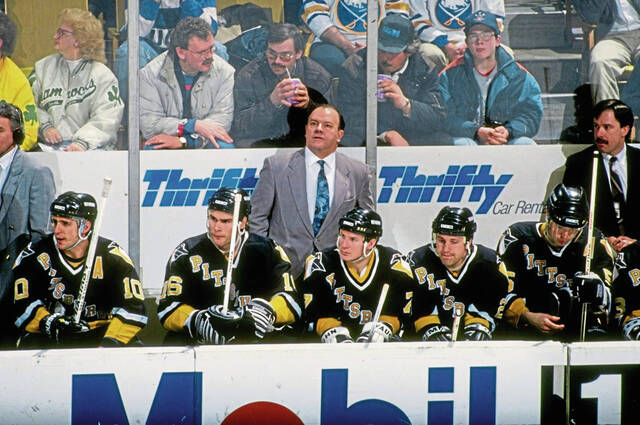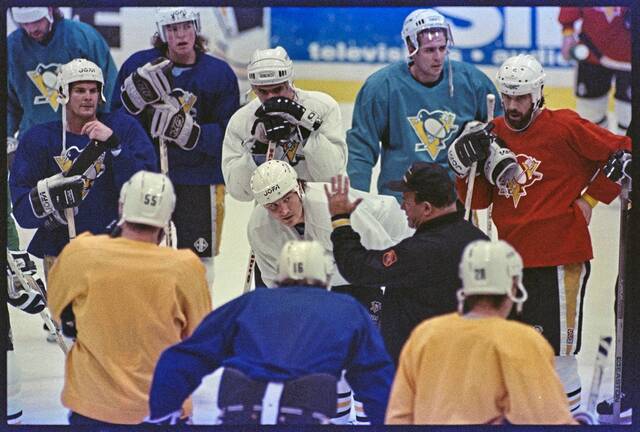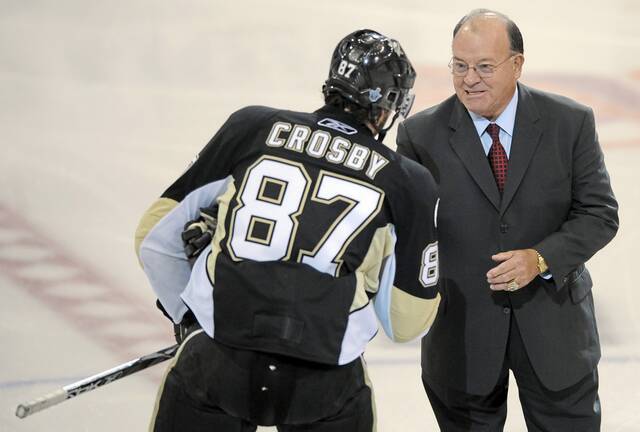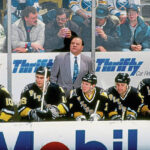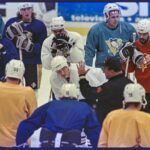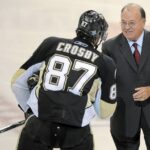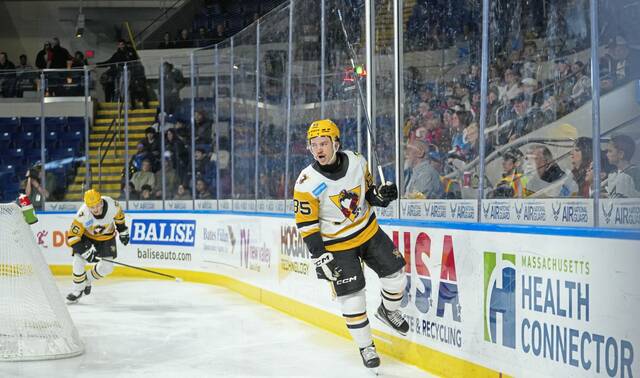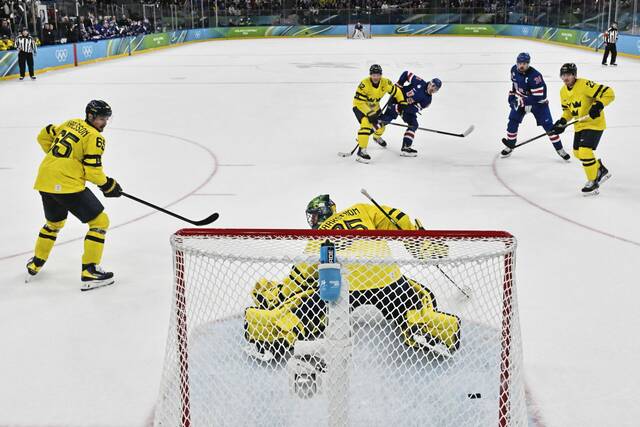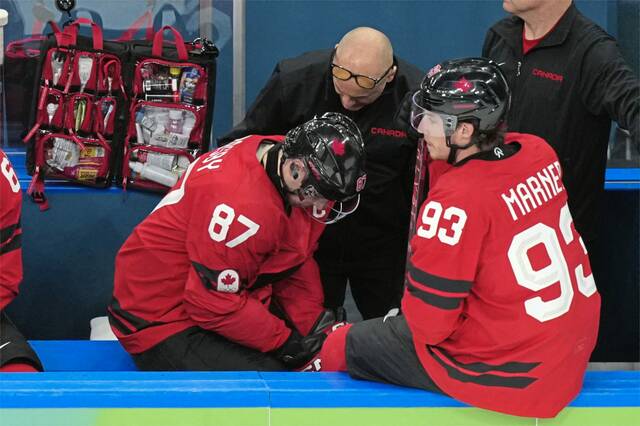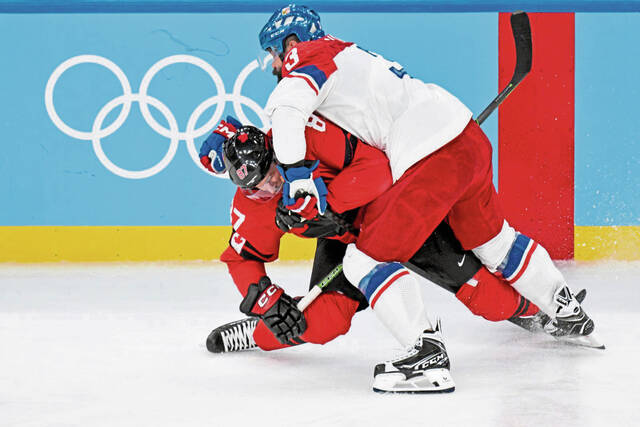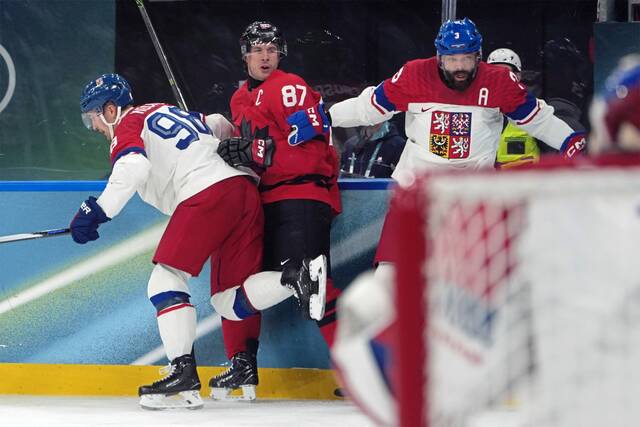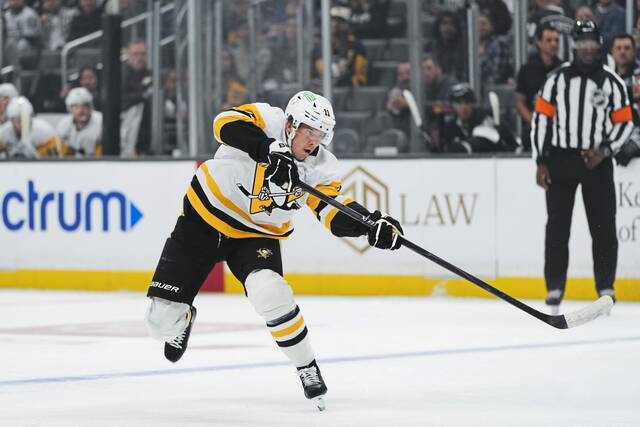On the surface, it almost seems absurd.
Having Scotty Bowman, the greatest coach in NHL history, run your player development department?
It’s like getting Michelangelo to paint your garage.
But the arrangement suited everybody’s needs, especially Bowman’s.
In 1990, Pittsburgh Penguins general manager Craig Patrick spoke with his former junior coach about taking on a front office role that didn’t require the intense day-to-day duties Bowman had regularly taken on as a head coach or general manager with other NHL teams.
At that time, Bowman was three years removed from leaving the Buffalo Sabres after serving the dual roles of head coach and general manager. He had worked as a broadcaster on Canadian television but desired something more directly tied to the NHL, but not too direct.
In stepped Patrick with an offer that provided a tether to Bowman but also free time to devote to his family life, which was situated in Buffalo.
“(Patrick) said, ‘I would like to get somebody to help with the roster. You know all the players and all that,’ ” Bowman recalled during a conference call Sept. 15. “Then he said, ‘You won’t have to move.’ That was the appealing part of the job. My kids were still in high school. That appeals to me. I’ll come in. Then he said, ‘You’ll come in on different occasions, when we have meetings and all that.’ It’s not very far. It’s a little over three hours.
“It made for a good fit, and that’s the reason I got to Pittsburgh.”
The arrangement bore wonderful results as the Penguins won the franchise’s first Stanley Cup title in 1991, thanks to Bowman’s advice in crafting the roster. Then they repeated as champions in 1992 after Bowman was pressed into duty behind the bench to fill the considerable void created by the death of incumbent coach Bob Johnson following a bout with brain cancer.
Bowman’s seismic contributions to the organization are the reason he will be formally inducted into the team’s relaunched Hall of Fame on Saturday, along with longtime executive and coach Eddie Johnston as well as forwards Ron Francis and Kevin Stevens.
By the time he arrived in Pittsburgh, Bowman’s credentials were already worthy of the Hockey Hall of Fame. In fact, he was enshrined in that institution by 1991.
More than a decade earlier, Bowman guided arguably the greatest dynasty in NHL history, the Montreal Canadiens of the late 1970s, to four consecutive Stanley Cup titles.
After jumping to the Sabres in 1979 to take on coaching and general manager duties, he became the NHL’s career leader in coaching wins by 1984. And even after leaving the Penguins in 1993, he continued to build his nonpareil resume by leading the Detroit Red Wings to three Stanley Cup titles in the late 1990s and early 2000s as coach.
His time in Pittsburgh was the shortest stop of his career — he was also coach and general manager of the expansion St. Louis Blues for parts of four seasons starting in the late 1960s — but his impact on the Penguins was immeasurable, unless one tabulates Stanley Cup banners as a unit of measurement.
Patrick, who skated for Bowman with the Montreal Junior Canadiens in 1964-65, had taken over the Penguins in December 1989.
In spring 1990, Patrick met with Bowman.
“He said he wanted to get out of broadcasting,” Patrick said. “He wanted to be part of a team. I said, ‘OK, well, I’ll come up to Buffalo and we’ll see what you want to do.’ I went up to meet with him at the U.S. Airways club in Buffalo, at the airport. We started talking. He said he didn’t want to leave Buffalo. He wanted to stay there, but he wanted to be part of a team. Travel around, find players.”
“So, I came back and started thinking about it. He’s a great hockey mind. I might as well add him to the staff. That’s how it started out.”
Bowman did offer an addendum to his discussion with Patrick.
“At the end of the meeting, he said, ‘Well, I can still coach, too,’ ” Patrick said. “I said, ‘Yeah, I know. I have a coach.’ ”
Patrick, who had hired Johnson that June, made numerous transactions to transform the roster that offseason and going into the regular season. Veteran stars such as Joe Mullen and Bryan Trottier were added to the group over the summer. Then, in-season trades added the likes of Larry Murphy, Peter Taglianetti and Jiri Hrdina.
And of course, the deadline deal in March 1991 that acquired Francis as well as Ulf Samuelsson and Grant Jennings remains the standard against which virtually every other blockbuster trade in the NHL is weighed.
One addition recommended by Bowman stands out to Patrick.
“He saw (defenseman) Gordie Roberts play,” Patrick said. “St. Louis sent him down to their farm team. Scotty Bowman saw him play and said, ‘Gordie can help us.’ So, I traded for Gordie.”
A rugged defensive presence, Roberts was a staple on the Penguins’ blue line for each of their first two Stanley Cup titles.
That second championship happened under tragic circumstances, however.
In August 1991, the effervescent Johnson went on a leave of absence to undergo treatment but succumbed to his disease in November.
After Johnson’s diagnosis, Bowman was installed as interim coach.
“We had that surprise in August (1991) when Bob started getting sick,” Bowman said. “That was a tough time for the organization. I had to make a decision and talked to Craig a lot. … We knew it was serious (for Johnson), but we didn’t know the consequences of the treatments and everything. I just went in as an interim (coach), and Craig asked me to coach until we could decide. We wanted to keep that job open for Bob. Unfortunately, around Thanksgiving, Bob passed away.
“We were doing OK, but the team was not the same without Bob, for sure.”
In contrast to Johnson’s affability, Bowman’s style was largely to the point. But tactically, Bowman remained true to Johnson’s designs.
“I didn’t want to do any changes,” Bowman said. “The team didn’t need to have somebody else coming in with anything different. By spending a lot of time with Bob, especially in the (1991) playoffs, I knew what kind of work that he wanted to get done as a coach. It wasn’t easy, but I followed the year before of how he ran practices, the travel.
“We kind of just tried to pick up and do the same things. There was a lot of motivation for the players when Bob passed away. He had meant so much to the organization (with) what he did the year before.”
By June 1992, the Penguins had swept the Chicago Blackhawks in the Stanley Cup Final to repeat as champions. During the team’s victory celebration at a drizzly Three Rivers Stadium, Bowman made one point clear while on the stage speaking to the crowd.
“The coach of the Pittsburgh Penguins will always be … Bob Johnson,” Bowman asserted. “Thanks to Bob Johnson’s vision, all of this today is possible.”
— EN Videos (@ENVideos19) October 19, 2025
Bowman spent one more season with the Penguins, arguably the greatest regular season in the franchise’s history. The 1992-93 club — which had four 100-point scorers — won the Presidents’ Trophy as the top team in the regular season with an outrageous record of 56-12-7, including a 17-game winning streak to conclude the campaign (a mark that remains an NHL record today).
Infamously, the Penguins’ ambitions of a three-peat were snuffed out by an undermanned but plucky New York Islanders squad in seven games during the Patrick Division final.
An impasse over a new contract led to a divorce with the Penguins, and Bowman took over the Red Wings, leading that storied franchise’s return to glory.
Today, Bowman, now 92, still stays connected to the game, albeit at an arm’s length. He lives part-time in Florida and regularly attends Tampa Bay Lightning games where he holds court in the press box with current NHL executives as they roll through town. As recently as September, he watched the Sabres’ Prospect Challenge showcase event, which included the Penguins, the team that kept him connected to the sport about 35 years ago.
“I’ve seen good hockey,” said Bowman, whose name has been seen on the Stanley Cup 14 times. “I like close games. I like competition. I don’t go to all the games now, but I go to the games that I want to see, teams that I knew before or knew somebody that’s running them, and I enjoy it.
“It’s always been part of my life, and I’m glad that I’m still able to do it.”


